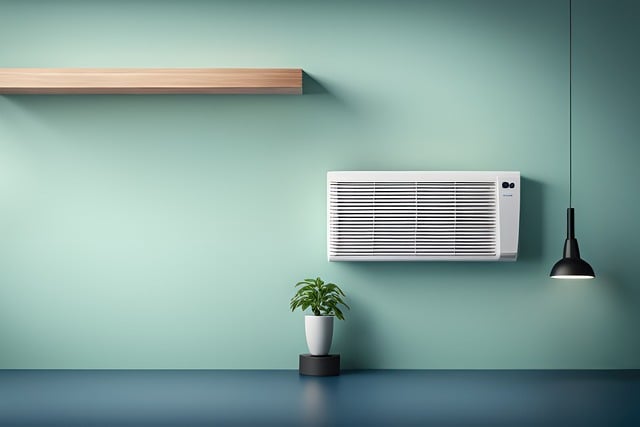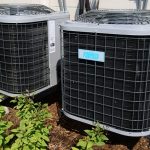Creating and maintaining a comfortable living environment in your home is a fundamental aspect of modern living. A crucial component of this comfort is the cooling system you choose. Among the array of options available, two primary contenders stand out: Zone Cooling and Central Air. These systems each bring their own unique set of advantages and disadvantages to the table, and the choice you make can significantly impact your home’s comfort, energy efficiency, and overall satisfaction. In this comprehensive guide, we’ll delve into the details of Zone Cooling and Central Air to help you determine which one aligns best with your unique needs and preferences.
Zone Cooling: Personalized Comfort
Zone Cooling, also known as ductless mini-split systems, takes a localized approach to cooling your home. It involves the installation of individual indoor units in specific zones or rooms. Let’s explore the key aspects of Zone Cooling:
Advantages of Zone Cooling
1. Energy Efficiency: One of the standout benefits of Zone Cooling is its energy efficiency. This system allows you to cool only the rooms you are actively using, thereby reducing energy waste in unoccupied areas. Over time, this can lead to significant cost savings on your energy bills.
2. Personalized Comfort: Zone Cooling provides the ultimate in personalized comfort. Each zone or room equipped with an indoor unit comes with its own temperature controls. This means that family members can customize the temperature to their liking, effectively eliminating thermostat battles and ensuring that everyone stays comfortable.
3. Potential Cost Savings: While the initial installation cost of Zone Cooling may be higher compared to Central Air, the long-term energy savings can more than offset this expense. If you’re looking to make an investment that pays off in terms of energy efficiency and comfort, Zone Cooling is a strong contender.
Disadvantages of Zone Cooling
1. Initial Installation Cost: The upfront cost of purchasing and installing multiple indoor units for Zone Cooling can be higher than the cost of a single Central Air system. However, it’s important to consider the long-term savings potential.
2. Maintenance Considerations: Maintaining multiple indoor units may require more effort and cost compared to a single central air system. Regular cleaning and servicing are essential to keep the system running efficiently.
Is Zone Cooling right for your home? Zone Cooling is an excellent choice if you prioritize energy efficiency, personalized comfort, and the potential for long-term cost savings. It’s especially suitable for homes with varying temperature preferences among occupants.
Central Air: Whole-House Comfort
Central Air, in contrast, is a more traditional and widespread cooling system. It operates through a single, central unit that distributes cooled air throughout the entire house. Let’s explore the key aspects of Central Air:
Advantages of Central Air
1. Whole-House Cooling: Central Air ensures uniform cooling throughout your home, providing consistent comfort in every room. There are no hot spots or chilly corners—just an even, pleasant temperature throughout.
2. Ease of Use: Central air systems are easy to control with a single thermostat, making it convenient for homeowners to manage their indoor climate. The simplicity of operation can be a significant selling point.
3. Potential for Improved Air Quality: Many central air systems come with built-in air filtration capabilities. This feature can significantly improve indoor air quality by removing dust, allergens, and pollutants, leading to a healthier living environment.
Disadvantages of Central Air
1. Higher Energy Consumption: Central air systems tend to consume more energy because they cool the entire house, even in rooms that are rarely used. This can result in higher energy bills, especially during peak cooling seasons.
2. Uniform Cooling May Not Suit Everyone: In households where different rooms have varying temperature preferences, central air may not provide the level of customization that Zone Cooling offers. Some individuals may feel too hot or too cold compared to their ideal comfort level.
Is Central Air right for your home? Central Air is a great choice if you prioritize whole-house cooling, convenience, and potential air quality improvements. It’s often favored for larger homes with consistent temperature needs.
Factors to Consider
When deciding between Zone Cooling and Central Air, several factors should influence your choice:
1. Climate and Geographical Location: Consider your local climate and weather patterns. Factors like humidity, temperature extremes, and the length of cooling seasons can influence your decision.
2. Home Size and Layout: The size and layout of your home play a significant role in determining the effectiveness of your cooling system. Larger homes may benefit from central air’s even distribution, while smaller homes could thrive with Zone Cooling.
3. Budget Considerations: Your budget is a crucial factor to consider. While Zone Cooling may have a higher initial cost, remember to factor in long-term energy expenses and potential savings.
4. Energy Efficiency Goals: If reducing your carbon footprint and energy consumption is a priority, consider which system aligns better with your sustainability goals.
5. Personal Comfort Preferences: Take into account the individual comfort preferences of your family members and how each system can accommodate them.
Making an Informed Decision
Choosing between Zone Cooling and Central Air is a significant decision that requires careful consideration. To ensure you make the right choice for your home, follow these steps:
1. Evaluate Your Needs and Priorities: Consider the factors mentioned above and how they align with your household’s requirements. Assess your priorities, such as energy efficiency, comfort, and budget.
2. Consult with HVAC Professionals: Seek advice from HVAC professionals who can assess your home’s unique characteristics and provide tailored recommendations based on their expertise.
3. Weigh the Pros and Cons: Take the time to compare the advantages and disadvantages of each system in the context of your specific situation. Consider both short-term and long-term implications.
4. Make an Informed Choice: Ultimately, choose the cooling system that best suits your home’s unique needs, budget, and comfort requirements. Remember that the goal is to enhance your quality of life and create a comfortable living environment.
Conclusion: Finding Your Ideal Cooling System
In the Zone Cooling vs. Central Air debate, there is no one-size-fits-all answer. The decision ultimately depends on your home’s characteristics, your family’s preferences, and your long-term goals. By taking the time to evaluate your options, consult with experts, and weigh the pros and cons, you can ensure that your choice leads to a comfortable and efficient home cooling system that enhances your quality of life.
Whether you opt for the personalized comfort of Zone Cooling or the whole-house convenience of Central Air, making an informed decision ensures that you’re on the path to enjoying a cool and comfortable home, no matter the season.

